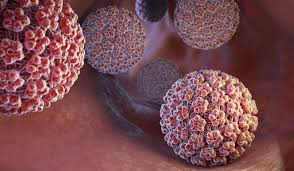In a significant move towards making cervical cancer screening more accessible, the All India Institute of Medical Sciences (AIIMS) has launched a study on indigenous Human Papillomavirus (HPV) tests for cervical cancer screening in India.
The study, spearheaded by AIIMS, involves three laboratories: AIIMS itself, NICPR Noida, and NIRRCH Mumbai. Dr. Neerja Bhatla, Head of Obstetrics and Gynaecology at AIIMS, Delhi, highlighted the potential of these indigenous HPV tests to offer quick and cost-effective results.
Dr. Bhatla stated, “There are several HPV tests now manufactured in India, but we have selected three tests that are point-of-care. The results will be available within one to one and a half hours, enabling us to plan the next steps efficiently.”
The outcomes of the study are expected in a few months, following which, Dr. Bhatla anticipates international validation of the indigenous tests. She emphasized that once validated, these ‘made-in-India’ tests will meet international specifications, making them suitable for export worldwide.
Currently, the cost of an HPV test in India ranges from Rs 1500-2000. However, with the introduction of Indian kits, the cost is anticipated to significantly decrease while enhancing accuracy.
Dr. Bhatla elaborated, “It will definitely be more cost-effective than current options. Additionally, it will offer greater accuracy compared to other tests.”
This initiative aligns with the broader goal of combating cervical cancer, which is the second most common cancer among women in India after breast cancer. Globally, cervical cancer is the fourth most common cancer in women, with a woman dying of the disease every two minutes.
According to GLOBOCAN, an estimated 663,301 women worldwide were diagnosed with cervical cancer in 2022, resulting in approximately 348,874 deaths. Low-middle-income countries (LMICs) like India contribute to nearly 80 percent of the disease burden.
In light of these alarming statistics, the World Health Organization (WHO) launched the ‘Call for Elimination of Cervical Cancer,’ with India as one of the signatories. The initiative aims to achieve 70 percent screening coverage for women and vaccinate 90 percent of girls by 2030.
The multi-center study supported by DBT-BIRAC Grand Challenges India in collaboration with WHO’s International Agency for Research in Cancer (IARC) represents a crucial step towards realizing this ambitious vision of a cervical cancer-free world.












